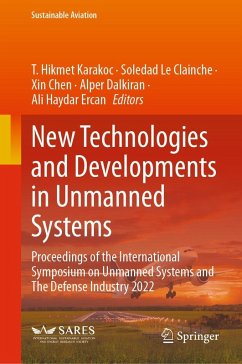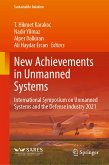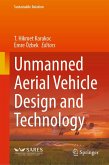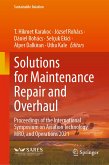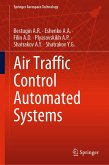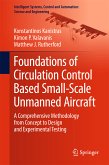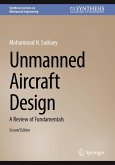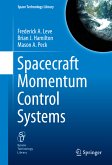T. Hikmet Karakoc, Ph.D., graduated from Anadolu University, the Department of Mechanical Engineering. He received his M.Sc. degree in Mechanical Engineering from the Yildiz Technical University. He received his Ph.D. from Anadolu University, where he started his full-time teaching and received his Full Professorship. He is currently researching at the Eskisehir Technical University. He has a wide range of research interests, including Sustainable Aviation, Aircraft Propulsion Systems, Insulation, Heating, Ventilating, and Air Conditioning, Indoor Air Quality, Gas Turbines, Cogeneration Systems, Renewable Energy, Energy Economics, Fuels, and Combustion. He has participated in numerous industrial projects on these topics as a researcher, consultant, and project manager for over 30 projects and corporations. He also started a contest on special insulation applications among university students. He served as an Editor-in-Chief, guest editor, and editorial board member for international scientific journals. He published national and international papers in over 300 journals and 40 books. Professor Karakoc actively follows membership positions for the Chamber of Mechanical Engineers and many sectorial associations, international scientific organizations, and societies. He is an active Board of Directors member of the International Association for Green Energy. He is currently holding the presidency of the SARES organization, which is actively supporting scientists and students in the area of Sustainable Aviation. He also organizes four symposiums on aviation subject areas as a Founding Chair. Soledad Le Clainche, Ph.D., is an Associate Professor in the Department of Applied Mathematics at the the Universidad Politécnica de Madrid (UPM) School of Aerospace Engineering. She received three Master of Science degrees in the following areas: Mechanical Engineering from the Polytechnic University of Cartagena, Aerospace Engineering from UPM, and Fluid Mechanics from the von Karman Institute for Fluid Dynamics. In 2013 she completed her Ph.D. in Aerospace Engineering at UPM. Her research focuses on computational fluid dynamics and the development of novel tools for data analysis enabling the detection of spatio-temporal patterns. Recently, she has developed reduced-order models taking advantage of the insights provided by data analysis tools. In addition, she has contributed to the fields of flow control, global stability analysis, analysis of flow structures in complex flows (transitional and turbulent) using data-driven methods, and prediction of temporal patterns using machine learning and soft computing methods. She has published more than 80 scientific contributions (articles, proceedings, and book chapters), written two books, and supervised 15 undergraduate/master and two Ph.D. students. She is the primary investigator (PI) of the (Spanish) National Project NEMDAEA and PI of the MSCI Doctoral Network European projects MODELAIR (PI-Coordinator) and ENCODING (PI-UPM). These three projects aim to develop new machine learning tools and models to reduce environmental pollution by improving aircraft efficiency, reducing air pollution in cities, and improving the efficiency in turbulent combustion, respectively. Xin Chen, Ph.D., is currently an Assistant Professor at the Telecommunications Engineering School of Universidad Rey Juan Carlos. Prior to that, she was a visiting investigator at the Massachusetts Institute of Techology and a visiting professor and the "Juan de la Cierva Formacíon" postdoctoral researcher at the Universidad Carlos III de Madrid. Dr. Chen received a Bachelor's degree in Electrical Engineering and Automation from Shanghai University in 2007 with the Outstanding Graduate Award, a Master's degree in Aerospace Engineering from Università di Pisa and Universidad Politécnica de Madrid in 2009 with a full scholarship from the European Commission, and a Doctorate in Plasma Physics and Aerospace Engineering on the from the Universidad Politécnica de Madrid, where she graduated cum laude and fully funded by the European Commission FP7 project in 2015. Alper Dalk¿ran, Ph.D., received his bachelor's degree Faculty of Aeronautics and Astronautics at Eskisehir Technical University (formerly known as Anadolu University) from the Avionics Department. He completed his MSc degree in the School of Science from Anadolu University in 2004 in Aviation Maintenance. He earned his Ph.D. degree in 2017 in Environmental Sustainability on Airports from the School of Science at Anadolu University by developing a model of energy-based calculations of an aerodrome. He has studied on aircraft engines, sustainability, airports, and exergy. He has 17 years of professional experience in Airports in Information Technology, Automation, and Integration. He has managed teams on system design, projects, tests, commissioning, operational readiness, and operations. He has been working in the School of Aviation at Suleyman Demirel University since 2019 and lecturing in Flight Theory, Airline Management, and Airport Design subjects. Ali Haydar Ercan, Ph.D., received his bachelor's degree from the Mechanical Engineering Department, Faculty of Engineering at the University of Cumhuriyet, Sivas, and his MSc degree from the Mechanical Engineering Department at the University of Gazi, Ankara, where he studied Heat Transfer. He earned his Ph.D. from the Department of Aerodynamics, University of Liverpool, England, where he worked on Boundary Layer Theory on Flat Plate Surfaces and developed empiric formulas for transition development distance from the leading edge. He completed his Ph.D. in 1997. He also earned a Postgraduate degree in Software Technologies from the University of Liverpool in 1999. He worked at the University of Cumhuriyet as a lecturer, at the University of Liverpool as an assistant lecturer while studying for his Ph.D., at the University of 19 May¿s as Head of the Junior Aviation Technical School, and was one of the founders of the department. Currently, he is working as a Lecturer in the Department of Unmanned Aerial Vehicles in Electronics and Automation at Porsuk Vocational School at Eskisehir Technical University. He is also working on PIV (Particle Image Velocimetry) related subjects and a new idea for wing design. He is a reviewer for four journals and a guest editor. He has held a wide range of managerial positions experience with international commercial private companies.
1st Keynote Session.- 2nd Keynote Session.- Unmanned Autonomous Vehicles - 1.- Kalman Filter Application, Space, Flight Performance, and Aerodynamics - 1.- 1st Invited Speaker Session.- Workshop Pico/Micro/Nano-Satellite Engineering.- 2nd Invited Speaker Session.- 3rd Invited Speaker Session.- Environment, Sustainability, Energy Simulation Studies - 1.- Unmanned Autonomous Vehicles - 2.- Special Session - Lighter, Faster, Stronger, Cheaper: How Generative Design is Transforming Design & Manufacturing.- Unmanned Autonomous Vehicles - 3.- Environment, Sustainability, Energy Simulation Studies - 2.- Aircraft Technologies: Design, Materials, Structures, Composites.- Unmanned Autonomous Vehicles - 4.- Kalman Filter Application, Space, Flight Performance, and Aerodynamics - 2.

